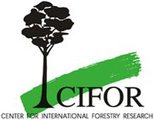The Center for International Forestry Research (CIFOR) published a working report titled "Gender and Forests in Nicaragua's Indigenous Territories – from national policy to local practice," which focuses on gender in Nicaragua's North Atlantic Autonomous Region.
The report is based on the results of the study "Gender, Tenure and Community Forests in Nicaragua."
 7 March 2013: The Center for International Forestry Research (CIFOR) has published a working report titled “Gender and Forests in Nicaragua’s Indigenous Territories – from national policy to local practice.” The report focuses on gender in Nicaragua’s North Atlantic Autonomous Region, and is based on the results of a study titled “Gender, Tenure and Community Forests in Nicaragua.”
7 March 2013: The Center for International Forestry Research (CIFOR) has published a working report titled “Gender and Forests in Nicaragua’s Indigenous Territories – from national policy to local practice.” The report focuses on gender in Nicaragua’s North Atlantic Autonomous Region, and is based on the results of a study titled “Gender, Tenure and Community Forests in Nicaragua.”
The publication analyzes Nicaragua’s laws and national policies on gender in forests and their application among indigenous communities. The report concludes that although there is a supportive legislative framework for gender mainstreaming in forests, project level work tends to limit focus only to the participation of men versus women. In particular, the report states that there are very few successful examples of indigenous women in positions of authority over forests.
The report examines what makes gender in indigenous forests successful, including: a higher level of education, the presence of community women’s organizations and the provision of relevant training. According to the publication, obstacles include: a lack of respect for the role of women outside the household and a lack of confidence in local authorities.
CIFOR is a member of the Consultative Group on International Agricultural Research (CGIAR). [Publication: Gender and Forests in Nicaragua’s Indigenous Territories – from national policy to local practice]